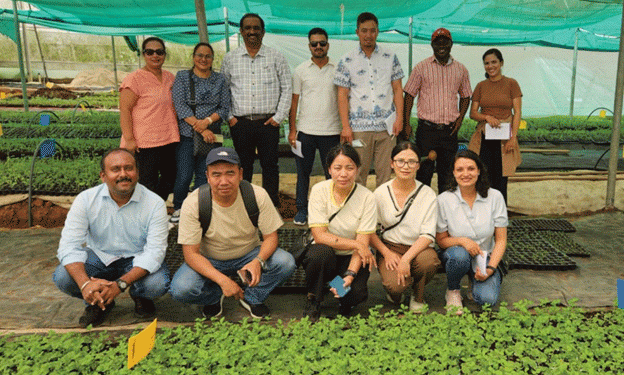In the mountainous regions of Nepal and Bhutan, where difficult terrain and unique climatic conditions shape agricultural practices, potatoes have become an essential crop. Not only do they contribute significantly to food security, but they also support farmers’ livelihoods and play a crucial role in the local and export markets. In Bhutan, over 22% of farming households rely on potato cultivation, producing nearly 38,000 metric tons annually, much of which is exported to neighboring countries. Similarly, in Nepal, potatoes rank as the fourth most important crop after rice, maize, and wheat, contributing over 6% to the nation’s agricultural GDP.
Potatoes are particularly significant in the high-altitude regions of Nepal, where they provide a vital source of nutrition in areas where other crops may struggle to grow. The steady rise in potato consumption highlights the increasing importance of the crop in these regions. Currently, yields in Nepal range from 10 to 17 tons per hectare, but there is potential to double these numbers with the introduction of better farming practices and new potato varieties.
This is where the work of the International Potato Center (CIP) becomes critical. The CIP has launched an initiative to enhance potato production in Nepal and Bhutan by training local scientists in advanced seed production technologies and quality assurance practices. This effort aims to equip National Potato Program teams with the knowledge and tools necessary to improve seed production efficiency and access to high-quality, resilient varieties.
In a recent training held in Bangalore, India, participants from Bhutan and Nepal were introduced to cutting-edge technologies such as rooted apical cuttings (RAC) and Loop-Mediated Isothermal Amplification (LAMP) assays. The RAC technology allows for the rapid multiplication of new potato varieties by using young cuttings from plants, significantly reducing the time needed for seed production. This method also helps to minimize exposure to soil-borne diseases, ensuring healthier and more affordable seed potatoes for farmers.
The LAMP assay technology is a diagnostic tool that detects plant pathogens early, providing farmers with the ability to take preventive measures before diseases spread. This is especially important in high-altitude regions, where the cold climate can exacerbate plant health issues. With these innovative tools, CIP is helping farmers combat challenges such as diseases, pests, and fluctuating yields, while promoting the adoption of improved varieties and techniques.
The training program, which was led by experts such as Dr. Kalpana Sharma, Mr. Ravindranath Reddy, and Mr. Elly Atieno, also included practical field training. Participants learned both the theoretical and hands-on aspects of RAC production and the deployment of LAMP assays. The inclusion of students from the University of Horticultural Sciences Bagalkot further enriched the learning experience, fostering collaboration across countries.
This initiative is part of a broader effort to strengthen seed systems in Nepal, Bhutan, and India, helping farmers increase crop productivity and meet rising demand. By focusing on seed quality and disease management, CIP’s work is contributing to the sustainable development of rural communities and supporting food security in the Himalayas.
The introduction of innovative seed production and disease diagnostic technologies, such as RAC and LAMP assays, is helping transform potato farming in Nepal and Bhutan. With enhanced seed systems, farmers are better equipped to grow higher-yielding, disease-resistant potatoes, ensuring improved food security and economic stability. These advancements are not only boosting agricultural productivity but also empowering local farmers to meet the growing demand for potatoes in the region.







